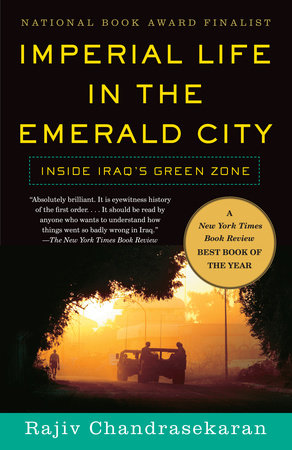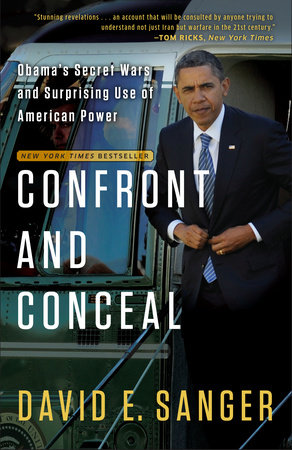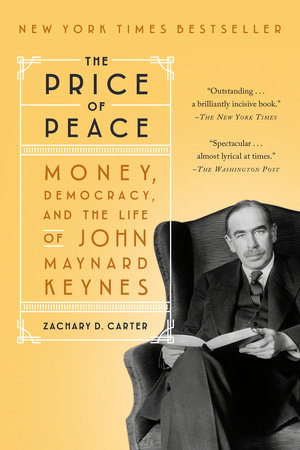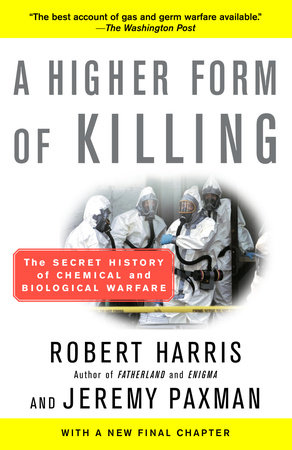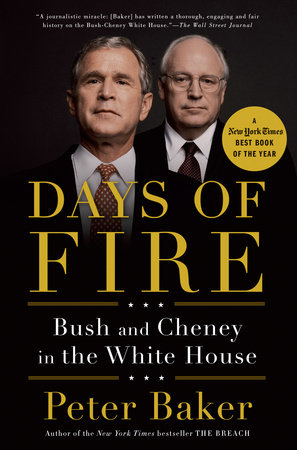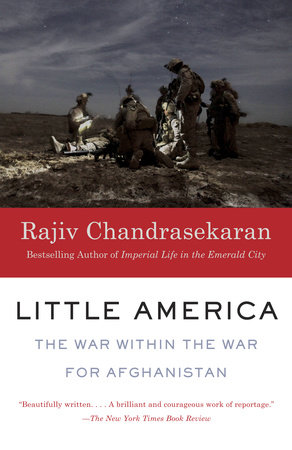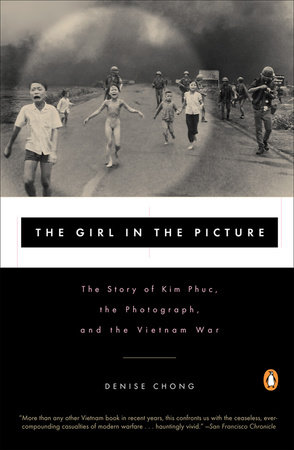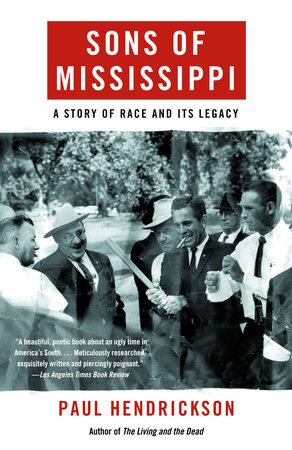Q: The stories contained here are pretty explosive. You detail how Bernard Kerik was more interested in photo-ops than training the Iraqi police, how prospective Coalition Provisional Authority staffers were asked for their views on Roe v. Wade, how a 24-year-old without any finance background was put in charge of rebuilding the Iraqi stock exchange. Why hasn’t this been widely written about before?
A: During the occupation, most journalists were focused on U.S.military operations or on feature stories about newly liberated Iraqis reveling in their freedom; very few reporters spent any appreciable time digging into the CPA. Early on, my editor at The Washington Post very wisely encouraged me to keep my eyes on Ambassador Bremer and his occupation government. But the CPA was incredibly difficult to penetrate. The CPA’s press office placed all sorts of barriers in the way of reporters who sought to interview, or simply interact with, CPA staffers. (They insisted that a press minder be present at any meeting between a journalist and a CPA employee.) I managed to get around those rules by calling and e-mailing CPA officials directly, but it was an onerous process, and I was only able to scratch the surface ofthe organization. My reporting eventually led to a three-part series in The Post about the CPA’s unfulfilled promises. Although the series was published two weeks before the CPA was dissolved, the overwhelming interest in those stories led me to continue digging—and to write this book.
Most of juiciest parts of the book were the result of reporting conducted in the United States after the end of the occupation. It was not until CPA staffers had returned home that I could speak to them without fear of getting busted by the press minders. Some of them were ready to talk right away; others only decided to cooperate after seeing their grand initiatives crumble away. Some were willing to talk on the record; others, who continued to work for the Bush administration, only agreed to cooperate on "background" because they feared retribution. I often sat down with people for four or five hours at a stretch to have them describe in painstaking detail their experiences with the CPA and life inside the Green Zone. (I joked thatI provided free therapy to dozens of disillusioned people.) After the first few interviews, it became clear that I was onto an amazing tale of American folly. I can only assume the reason why others haven’t written about the CPA is that it didn’t seem exciting on first glance. What I discovered, however, is that dogged reporting can yield some really fascinating material.
Q: Were you shocked by the disparities between the Green Zone and the rest of Baghdad? What surprised you most?
A: I had always expected the Americans to establish a headquarters area in Baghdad for the occupation administration, but I had assumed that they would set things up so that the Americans working for the CPA would be able to easily interact with Iraqis, and vice versa. Of course, as security conditions deteriorated, it became necessary to wall off the Green Zone and restrict travel, but those steps were taken well before they became necessary, depriving the Americans of the ability to communicate with—and learn from—Iraqis. I figured that, at the very least, there would be some attempt to expose Americans in the Green Zone to Iraqi cuisine, culture, and customs. Instead, they got bacon, booze, and bare midriffs. What surprised me more than anything else was that you could spend months in the Green Zone and never eat a traditional Iraqi meal or learn anything about Islam. Like most journalists in Iraq, I lived outside the Green Zone. Whenever I went inside, I felt as if I had entered a Disney-like fantasy land: I waited under wooden shelters for air-conditioned shuttle buses, I ate hot dogs for lunch, and I heard my fellow Americans describe a vision for the future that seemed divorced from reality that I experienced outside the walls.
Q: How did Bremer’s misjudgment of Ayatollah Sistani’s power and import within Iraq handicap him throughout his time there? Is this indicative of his attitude towards Iraq during his tenure as viceroy?
A: Bremer and his senior staff knew Sistani was an important religious leader, but they never understood that the grand ayatollah was the most influential political figure in the country until they had made a series of decisions that set them on a crash course with his fatwa. Had they appreciated his influence from the beginning, and then enlisted more influential interlocutors to communicate with him, they might have come up with a workable political transition plan much sooner.
Q: You write about how the main factor in hiring people to work for the CPA was loyalty to the Bush administration. How was this enforced? Were there any Democrats working there? Does this remain the case today?
A: There were some Democrats there. (Please see Page 81: my scene about Donkeys in the Desert.) The principal enforcer of Republican loyalty was Jim O’Beirne, the White House liaison to the Pentagon. His office was responsible for hiring most CPA staffers. (I write about him in Chapter 5.) Instead of seeking out the best-qualified people, regardless of party affiliation, he sought out young Republicans from conservative think tanks, cabinet departments, and the offices of Republican members of Congress. There are probably more Democrats there today because the State Department is in charge of the U.S. Embassy. By law, State cannot ask people applying for most embassy jobs about their party affiliation.
Q: You talk about John Agresto, who was well (and closely) connected to Rumsfeld and Cheney, and had thus been appointed to rehabilitate Iraq’s university system. After his time in Iraq, his disillusionment let him to describe himself as "a neoconservative who’s been mugged by reality." How widespread do you think that feeling was?
A: Agresto was one of the very few CPA staffers I met in Baghdad who voiced disillusionment with the grand American experiment to remake Iraq, and he did so only as he was planning to depart for good. If his colleagues had doubts at the time, they didn’t share it with journalists, or, for that matter, with anyone else in the palace. The Green Zone was the land of true believers. In the book, I write that "unless you knew someone really, really well, you didn’t question American policy over a meal" in the dining hall. I also recount how staffers in the CPA’s press office stared as one man unwrapped a care package from his mother to find a book written by Paul Krugman. "It was like I had just unwrapped a radioactive brick," the man told me.
Some of that changed once the CPA dissolved and its personnel returned to their regular lives in the United States. By early 2005, with violence increasing, with religious parties winning elections, with reconstruction projects stalling or being scrapped altogether, with extremists on rise, some of the true believers began questioning the core assumption that brought them to Iraq—that Bremer’s CPA would beable to turn Iraq into a stable, secular, free-market democracy. Many of those people agreed to talk to me for this book. Most of them still work for the Bush administration, and many requested that I not use their names in print.
Halfway through my time in Iraq, after reading Neil Sheehan’s "A Bright Shining Lie," I wondered whether there was a John Paul Vann in the Green Zone. I kept my ears open for someone as outspoken as Vann, but I never found anyone who saw the failings of America’s political and military strategy in Iraq as clearly as Vann did in Vietnam. Some have suggested that Agresto is my Vann, but one crucial difference remains: Vann died believing that Vietnam was winnable; Agresto, as I detail in the end of the book, has no such optimism about Iraq.
Q: You note in one of the several, insightful vignettes from the Green Zone that many British members of the CPA were not on board with the mission in Iraq, as evidenced by their note on a bulletin board saying "YEE HAW IS NOT A FOREIGN POLICY." What was the relationship like between the British and the Americans in the Green Zone, given the nearly universal disapproval of any critical commentary of Bush or the job in Iraq?
A: The relationship was tense at best. In marked contrast to their American counterparts, many of the Brits who came to work for the CPA were diplomats who spoke Arabic, had worked in the Middle East, and had post-conflict reconstruction experience. The British also knew about the history of foreign occupation of Iraq—thousands of their countrymen died in an invasion and occupation of Iraq in the early 20th century—and they understood the need for modest, incremental change that involved full Iraqi participation, instead of sweeping, top-down solutions sought by the American bureaucrats cloistered in the Emerald City. As a consequence, the Brits in the Green Zone often found themselves at odds with the Americans.
It was the British, for instance, who argued against a plan by neoconservative American economists to replace monthly food rations with cash payments. It was supposed to be a first step toward eliminating government handouts, and the economists proposed that it be accomplished by issuing every Iraq family a "smart card" to track their stipends. When the Brits heard about the plan, they were flabbergasted. Nobody in Iraq used credit cards, and food merchants didn’t have more than a few hours of electricity a day; there was no way the cards could be processed. The British, with the help of senior U.S. military officers, eventually prevailed on Bremer to scuttle the smart-card plan.
Before long, the British members of the CPA found themselves frozen out of high-level decision making within the Republican Palace. The Americans regarded them as insufficiently committed to the mission to remake Iraq and kept them at arm’s length. But they didn’t want to send them packing. Having the Brits around helped perpetuate the notion that the occupation of Iraq was a "coalition" project.
Here’s a telling anecdote that I recently heard (and that’s not in the book): When President Bush arrived at Baghdad’s airport for a short, secret visit on Thanksgiving Day 2003, nobody on Bremer’s staff alerted Sir Jeremy Greenstock, the top British diplomat Iraq. (Greenstock’s office was directly across from Bremer’s, in the same palace suite.) Greenstock learned Bush was in Iraq by watching the visit on television.
Q: It’s pretty evident that most of the information fed to the press from Iraq during the CPA’s existence was less than forthright—for example, you document Bernie Kerik going on TV discussing how things were improving before he’d even left the Green Zone for the first time; you note that CPA spokesman Dan Senor maintained that Iraqis wanted U.S. troops to stay in Iraq even though the CPA’s own polling suggested the opposite. How much of the information released by the CPA could be trusted? How much of the information released now, do you think, can be trusted?
A: The CPA’s press office did a masterful job of spinning the media, at least for the first six to nine months of the occupation. (It was, perhaps, one of the most successful things the CPA did!) Facts that made the CPA look good were readily disseminated to the press; those that were unflattering were buried or were never announced. Unlike the spokespeople at U.S. embassies, who often are professional diplomats who represent American interests without partisan bias, the CPA’s press office was like a war room for the president’s re-election campaign. Many of the people working in the press office were loyal-to-the-core Republicans, drawn from Capitol Hill, cabinet agencies, and GOP-supporting think tanks. They insisted all was going swimmingly with the American experiment in Iraq, even when a quick trip outside the Emerald City made clear that wasn’t the case.
When the press corps in Baghdad began to question the CPA’s assertions, the press office adopted new strategies: reach out to sympathetic conservative journalists, and put CPA officials on American television programs whose hosts hadn’t been to Iraq and couldn’t truth-squad CPA claims. It worked for a while, but when the country boiled over in April 2004 because of the Moqtada al-Sadr rebellion and the siege of Fallujah, even the true believers began to question the CPA’s–and the White House’s–policies.
I think that information coming out of the U.S. Embassy in Baghdad today is far more realistic and accurate. The embassy’s press officeis staffed with nonpartisan State Department personnel who are doing a much better job conveying the complexity of the situation there.
Q: In the chapter entitled "Bring a Duffel Bag," you discuss Custer Battles LLC, a shockingly inexperienced (and, in the end, unethical) contracting company that was somehow able to secure more than $100 million in contracts from the US government. How did this happen? Was this an isolated event, or were there more shams of this sort?
A: I wish what happened with Custer Battles was an aberration, but it wasn’t. There were other firms and individuals engaged in shady–and downright illegal–business practices in Iraq. Some of those cases have been detailed in reports issued by the Special Inspector General for Iraq Reconstruction.
The fraud that I detail in the "Bring a Duffel Bag" chapter occurred not just because individuals with Custer Battles decided to break the law, but also because the CPA didn’t have the right people and structures to manage the disbursement of billions of dollars of contracts.
One interesting footnote: Since I wrote the book, a federal judge has dismissed key parts of a lawsuit alleging Custer Battles defrauded the U.S. government. The reason? The millions of dollars Custer Battles made from overcharging the CPA involved Iraqi funds, not U.S. taxpayer dollars. Apparently it’s not a crime to steal Iraqi money.
Q: Why did CPA officials so frequently ignore the advice of experts who knew more about Iraq?
A: Political considerations were almost always the key determinant in decision making inside the Emerald City. Consider health care (Fred Burkle, a well-regarded public-health specialist, was replaced by Jim Haveman, who had no post-conflict health-care expertise), governance (the views of State Department experts were ignored), or law enforcement (the Justice Department’s assessment that 6,000-plus police trainers were needed was discarded by the White House). Politics trumped good sense. Sometimes it was because the White House favored Republican Party loyalists. In other cases, such as with police trainers, the administration didn’t want—in the early days—to make it appear that America was planning to stay in Iraq for the long haul.
Q: Will you speak a bit about the pork in the cafeteria? What’s the rationale there?
A: The people running the cafeteria wanted to offer comfort food to Americans working in the Green Zone. I don’t think there’s anything wrong with providing some old-fashioned home cooking, but they could have avoided items that offended Muslims—and they could have served upa few Iraqi dishes. To me, the food selection was a metaphor for the larger American failure to understand Iraqi culture, traditions, and history.
Q: If you had to point your finger at one or two of the worst policy decisions made by Bremer’s CPA, what would they be?
A: Many others have identified Bremer’s decision to disband the Iraqi army and to deny employment to thousands of Baathists as the two most egregious decisions made by the CPA. While I won’t dispute that, there’s another that is just as responsible for the mess we’re in: The failure to send the right people to work for the CPA. There’s no dearth of nation-building talent in the United States; many of our best experts have worked for the State Department, the United Nations, or non-governmental aid organizations. Jim O’Beirne and the White House viewed most of those people as suspect. O’Beirne and the White House wanted people who shared their ideology, even if they lacked Arabic language skills or post-conflict reconstruction experience. We should have sent the best and brightest, not the loyal and willing.
Q: Where do things stand today? What, in your opinion, would turn things around?
A: There’s no easy solution. After Bremer left, American officials changed the way Iraqi security forces are recruited and trained, which has been an important development. The State Department has also re-allocated reconstruction money away from Bremer’s big projects to smaller, more sustainable initiatives. State has also sought to reach out to Sunnis in a way Bremer’s CPA never did. But even so, Iraq remains deeply troubled. I believe Iraq is in the throes of a low-grade civil war, and unfortunately, I think things will get worse before they get better. There was no way, I believe, to avoid a wrenching period of transformation after the fall of Saddam. But I feel that we lost one very valuable year to fix Iraq, and to address challenges such as the insurgency at their nascent stage, because ofthe CPA’s missteps.
